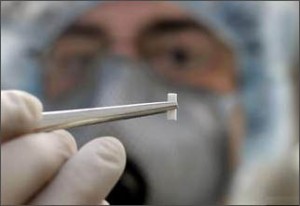
Dr. Mark Allen, MD, a urologist with North Dallas Urology Associates (https://northtexasurologist.com, 972.612.8037), hears the frustrations and complaints from patients that enter his Plano, TX urology office. A little probing, and it doesn’t take long for Dr. Allen to diagnose the problem: Have you recently noticed changes to your physique? Are you struggling with finding the energy to get through your daily routine? Has your sexual desire and stamina reached all time lows? Have you recently noticed that your daily tasks have become difficult to complete and hard to focus on?
If your answers to these questions are yes, and you are a middle-aged man, you may be suffering from Low Testosterone. In many cases, having an open discussion with your doctor about your symptoms can lead to possible treatment options (testosterone replacement).
What is Testosterone?
Testosterone is the male hormone that deciphers whether a fetus will have the reproductive organs of a male, or female. While it is the chromosomes of a fetus that decide the sex, it is Testosterone that builds male reproductive organs. Testosterone is released in large amounts in the body of a boy during his pubescent years, and provides him the ability to build muscle, deepen his voice, and creates his sexual desire. Throughout a man’s life it is the regular release of this male hormone that allows a man to maintain these masculine traits. After a male reaches 40 years of age his testosterone begins to decrease by about 3% a year, this is inevitable, and does not affect a man’s physique or lifestyle. An even larger loss of low testosterone in men, however, will cause undesirable side effects.
Low Testosterone in men only affects 1 in every 200 males under 60 years of age. But 20% of men 60 years of age and older suffer from a drastic decrease of these male hormones. Low Testosterone in men has been known to cause such symptoms as: anxiety and mood swings, difficulty concentrating, and a decreased ability to complete everyday intellectual tasks. A man suffering from Low Testosterone may notice weight gain around the lower abdomen or what is commonly referred to as the “beer gut.” When this weight is caused by Low Testosterone, and the male does not receive treatment, he may find it difficult to shed the pounds.
Perhaps the most common complaint among men suffering from Low Testosterone is erectile dysfunction, or the inability to receive and maintain an erection. The male testes produce testosterone, and when they produce a less than normal amount, the male is unable to receive an erection. It is also very common among men with Low Testosterone to complain of little or no sexual desire and/or sexual stamina. Though a loss of pride is not a direct symptom of Low Testosterone, it is no surprise that most men suffering from a loss of these male hormones suffer from this as well. In order to restore your pride, and achieve the successes of years passed, it is important to receive treatment to restore these male hormone levels.
What Causes Low Testosterone in Men?
While it is unavoidable that a man’s Testosterone will begin to decrease in his forties, there are a few things that cause lower than normal levels in men of all ages. Contributors to Low Testosterone are:
- Anti-Depressants/Anti-Psychotics
- Alcoholism
- Chemotherapy, Radiation treatments, and Cancer
- Disease and Illness
- Stress
What is Testosterone Therapy?
The first step toward treating your low Testosterone levels is testing the hormones to see if this is indeed the problem. Is it low T? Talk to your doctor about a simple blood test that will provide him the information necessary to treat your Low Testosterone problem. If you would like to test your Testosterone from home, you may purchase a testing kit and do so. If the test results prove that you are indeed suffering from Low Testosterone, do not be discouraged.
 Dr. Mark Allen, MD, of Plano, TX notes that low testosterone levels can be replaced through various types of testosterone replacement therapy. One such therapy is the insertion of testosterone pellets. According to Dr. Allen, “Low testosterone can be treated with the insertion of testosterone pellets. These small, compressed, Tic-Tac sized pellets are injected under the skin (most often in the buttock just below the waistline). It is a very easy procedure and leaves a very minimal scar. The dose varies according to blood levels and other factors. Most patients will see improvement in their symptoms within a few short weeks.”
Dr. Mark Allen, MD, of Plano, TX notes that low testosterone levels can be replaced through various types of testosterone replacement therapy. One such therapy is the insertion of testosterone pellets. According to Dr. Allen, “Low testosterone can be treated with the insertion of testosterone pellets. These small, compressed, Tic-Tac sized pellets are injected under the skin (most often in the buttock just below the waistline). It is a very easy procedure and leaves a very minimal scar. The dose varies according to blood levels and other factors. Most patients will see improvement in their symptoms within a few short weeks.”
Low Testosterone does not have to change your life. With the proper testosterone replacement treatment, and with the care of your physician, it is possible to replace these lost male hormones, and regain your pride, and a sense of normalcy once again. Discuss your options with your doctor and decide what would be the best solution for you.
